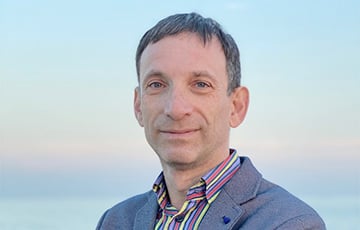The West Raises The Stakes
10- VITALY PORTNIKOV
- 17.06.2024, 18:24
- 39,968

Some specific decisions can change the course of the war.
Against the backdrop of summer summits, during which support for Ukraine is discussed as one of the most important topics for the leaders of the civilized world, a number of specific decisions have already been made that should change not only the course of the war, but also Russia's determination to continue it.
At the outset, I want to recall the White House's decision to allow Ukraine to use American weapons to strike Russian territory – except the deeper territory of Russia, and, in particular, the Kremlin, of course.
This is a really principled decision, because it means the possibility of destroying Russian arsenals outside the borders of Ukraine and significantly changes Moscow's capabilities regarding offensive actions. US President Joe Biden recalled this decision made during his visit to France, where he met with Volodymyr Zelensky.
In Berlin, at a ritual conference on restoration, they talked not only about restoration but also about the supply of new air defence systems and the need to resist new Russian attacks on the Ukrainian infrastructure.
At the G7 meeting in Italy, another important decision was made related to Russian assets stored in the West. This is the transfer of the revenue part of assets to Ukraine in the amount of $50 billion. The assets themselves remain frozen, but the possibility of "borrowing" interest is a serious signal to Moscow: if the war continues, we can also talk about "borrowing" capital itself.
And, of course, the decision on new sanctions – by the way, not only against the Moscow Exchange and other important Russian institutions, but also against Chinese companies that actively cooperate with Russia and help restore and develop the defence industry of this country. And this is a signal not only towards Moscow, but also towards Beijing.
Why is the West acting so unusually decisively? And why is one fundamental decision complemented by another? Perhaps because Western leaders are trying to remove Vladimir Putin's escalation monopoly?
After all, earlier only the Russian head raised the stakes when he convinced his Western colleagues that their assistance to Ukraine would lead not to the end, but to an aggravation of the conflict. And they continued to hope in vain that Putin would realize the futility of his intentions regarding his attempt to absorb Ukraine and would look for realistic ways to end the war. The head of Russia somehow did not hurry to realize this.
The West's patience began to fade around the second anniversary of the large-scale aggression, when French President Emmanuel Macron was gathering Western leaders for a meeting at the Elysee Palace. It was then that Macron said that the West's task was to create a sense of strategic uncertainty for Putin regarding the continuation of the war in Ukraine and spoke about the possibility of the presence of NATO troops on Ukrainian territory.
Yes, it was only a verbal escalation, but very important – especially since Macron has not abandoned his intentions, and now he is trying to gather a real "coalition of instructors" to train Ukrainian troops in Ukraine. But now "the escalation of the words" complements "the escalation of actions," which is important for changing the situation in the war.
Vitaly Portnikov, Radio Liberty









